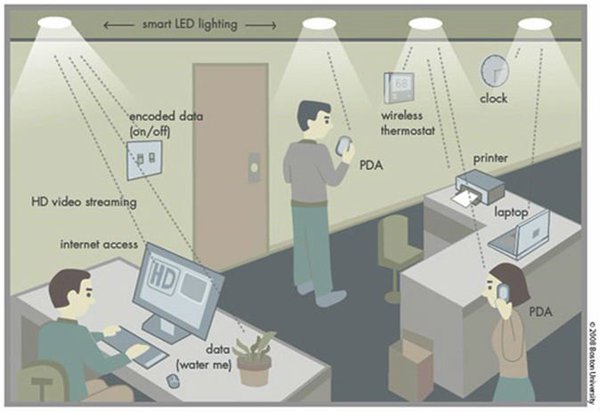Wi-Fi now has an alternative called Li-Fi, a revolutionary idea of connecting to internet using an LED lightbulb.
Li-Fi, or light fidelity was invented by Professor Harald Haas from the University of Edinburgh. It transfers data over the visual spectrum rather than via radio waves, according to Digital Trends. It is finally moving from research labs to the real world after an Estonian startup implemented the technology within a commercial context. Velmenni, a recent finalist at the Slush 100 startup competition in Helsinki, Finland, revealed that it has begun using the technology within offices and industrial setting.
The Li-Fi prototype relies on solar energy to power Internet connections so that an LED light source paired with a solar panel becomes a fully functional transmitter and receiver system for high speed, secure data transfer. Instead of relying on hardwired cables or radio waves that are easily interrupted, Li-Fi uses the nearly undetectable flicker of an LED light to transmit data.
Velmenni was able to send data through the Li-Fi touting light bulbs at up to 1GBps during pilot tests, which basically equates to downloading a HD film in a just seconds. Deepak Solanki, CEO of Velmenni, said that they have designed a smart lighting solution for an industrial environment where the data communication is done via light.
Li-Fi also allows for greater security on local networks as light cannot pass through walls, which also means there is less interference between devices. Perhaps the most significant advantage is the speed that the technology offers. Researchers have achieved speeds of 224 gigabits per second in lab conditions, International Business Times reported.
Prof. Haas believes Li-Fi could eventually be used to power a future generation of network in conjunction with Wi-Fi, providing more consistent coverage within buildings, as well as making for a potentially more secure network as Li-Fi can penetrate walls.


